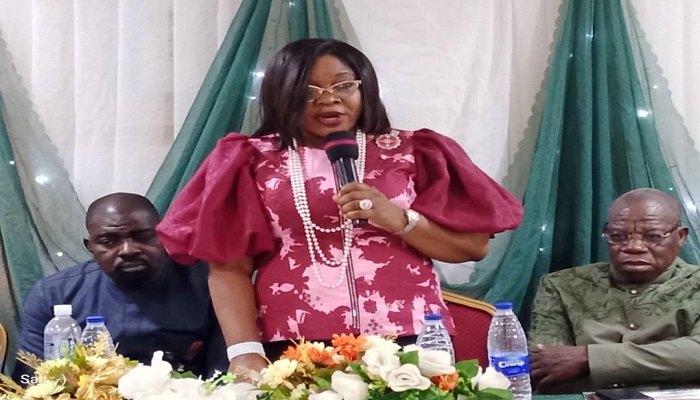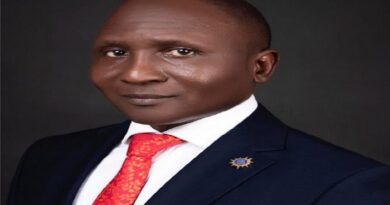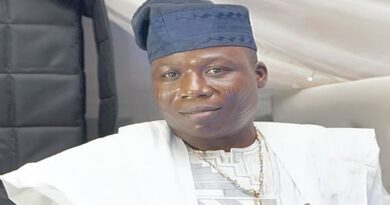Olukoyede charges internal auditors on using SOPs as tools for effective auditing
Executive Chairman of the Economic and Financial Crimes Commission (EFCC) Ola Olukoyede, has called on internal auditors across the country to always consider Standard Operating Procedures, SOPs, of corporate organisations, in addition to their professional codes, as potent guides in tackling financial malpractices.
He made the call in Lagos on Saturday, December 16, 2023 at the Annual Induction and Fellowship Award of the Society for West African Audit Practitioners, SWAIAP.
Speaking on the theme: “Internal Auditing, Tool for Preventive-Anti-Corruption & Anti-Fraud Strategies & Code of Ethics Agent”, Olukoyede said that, though internal auditors in corporate organizations had their professional guides through which they could police resources, the combination of professionalism and the SOPs of the organizations would equip them to perform creditably.
“The internal auditor is a financial gate-keeper. He carries out the role of a watchdog in the organisation. Every inflow and outflow in any organization must be certified by the internal auditor. To effectively do this, the organization must have a Standard Operating Procedure that will serve as a guide”, he said.
Olukoyede, who spoke through the EFCC’s Director, Internal Audit, Commander of the EFCC, CE Idowu Oluwole- Apejoye, emphasized that efficient accounting and internal control system could help in reducing the possibility of misrepresenting financial records due to fraud and errors as well as other corrupt tendencies. “All over the world, organisations either swim or sink depending on what is done with standards and there is no other professional that supervises standards than the internal auditor,”he said.
Olukoyede also shed more light on the role of internal auditors as a catalyst for achieving the corporate objectives of their organizations , saying, “the role of an internal auditor is to ensure that a culture of anything-goes is broken. Organisations succeed better when the internal auditor enforces quality and standards.” The EFCC boss further stated that internal auditors must ensure that an efficient and effective internal control mechanism was “put in place to curb fraud in order to assist in prevention and early detection; and also maintain and ensure strict adherence to set rules, regulations, extant laws and circulars.”
He urged internal auditors to have access to their entire work environments so as to enable them make informed judgment about any issue that might arise. “The physical and non-physical environments of organisations greatly determine the attainment of corporate objectives. To perform this role, the internal auditor must have access to the entire work environment and make his or her judgment on it”, he said.
While assuring SWAIAP of greater collaboration in the task of fighting economic and financial crimes, Olukoyede urged it to carry its members along “in the task of professional engagements and social responsibilities, with the aim of helping their various organisations achieve their corporate objectives.”
At the Award, discussions were also held on institutionalizing ethical principles, code of conduct and value system in private and public organisations. Speakers took turns to bare their minds on modalities needed in driving sound moral and financial principles capable of removing organisations from the scourge of corruption.




